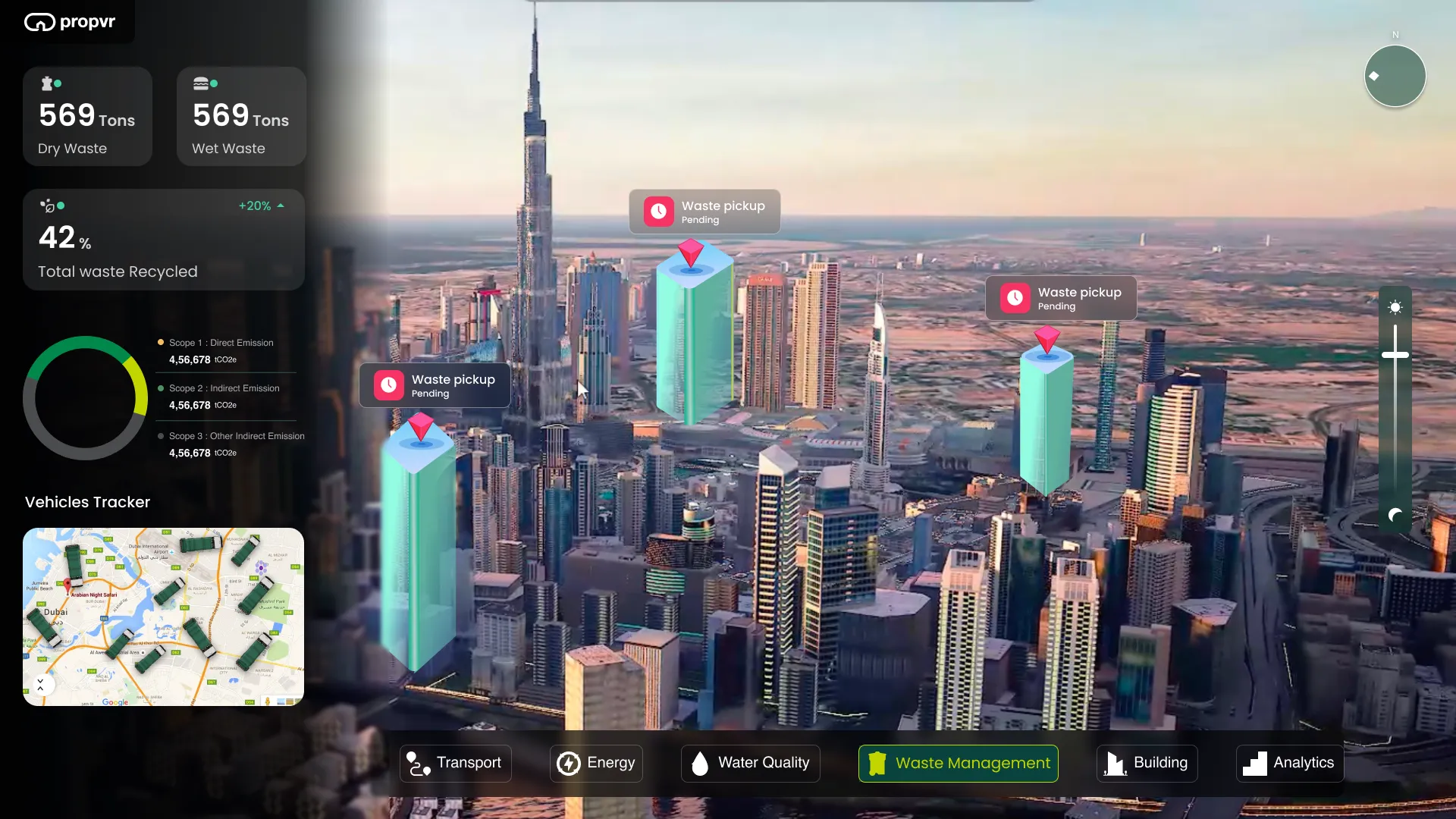Enhancing Waste Management with Digital Twins in Smart Cities
Introduction:
A smart city deployed Digital Twin technology to optimize waste management processes, aiming to reduce waste generation, increase recycling rates, and minimize environmental impact in preparation for COP28.
Scenario Analysis
The city faced challenges in managing increasing volumes of waste and limited recycling infrastructure, leading to environmental pollution and resource depletion. Traditional waste management systems were reactive and inefficient in addressing these complex issues.
Product Integration and Benefits
- Real-Time Waste Monitoring: Digital Twins provided real-time insights into waste generation and collection, enabling dynamic routing of waste collection vehicles and optimization of collection schedules.
- Recycling Infrastructure Optimization: The technology analyzed recycling rates and identified areas for improvement in recycling infrastructure, facilitating targeted investments and initiatives to increase recycling participation.
- Waste Reduction Campaigns: Digital Twins supported the implementation of waste reduction campaigns and initiatives by providing data-driven insights into waste generation patterns and behavior change strategies.

Conclusion
The integration of Digital Twin technology improved waste management in the smart city, resulting in reduced waste generation, increased recycling rates, and minimized environmental impact. This achievement showcased the city's commitment to sustainability and its proactive approach to addressing environmental challenges ahead of COP28.